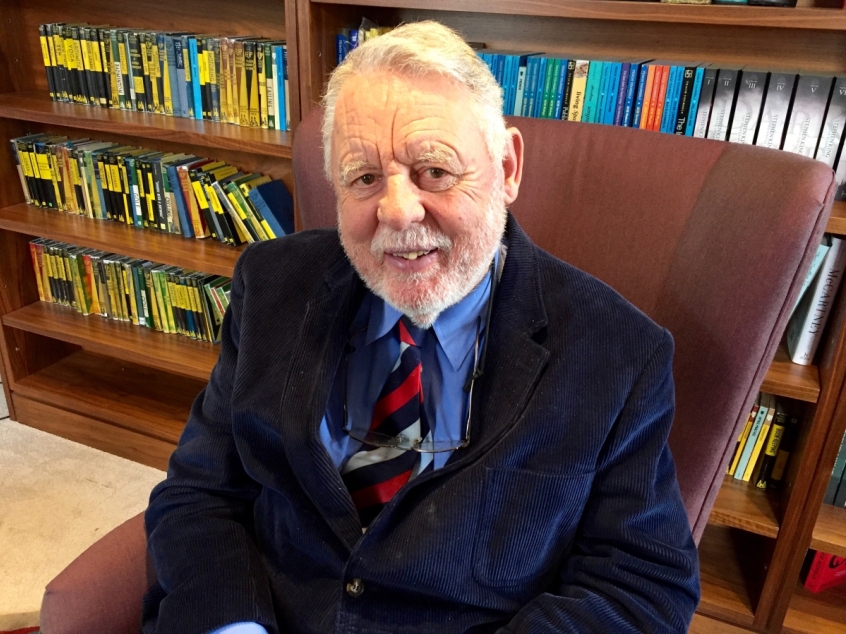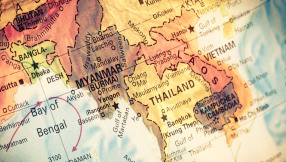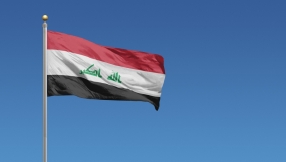
Former hostage Terry Waite has warned that the world is engaged in a Third World War.
He called for understanding of why young people become Islamic extremists and warned that there is "grave danger" of community conflict as a result of the influx of refugees fleeing to Europe.
Waite, speaking to Christian Today, said: "The situation today is rather like we've entered a new Third World War."
He said it was very different from the First and Second World Wars. "But at any given moment, in any part of the world, there can be a violent explosion which kills, maims, innocent people. And that can happen anywhere."
Waite was marking the launch of a new edition of his book, Taken on Trust, which was first published 25 years ago.
The book tells the story of his 1,763 days as a hostage in Beirut, of which four years were in solitary confinement.
Waite had been sent to Beirut as the envoy of the then Archbishop of Canterbury, Robert Runcie.
Waite warns in a new final chapter to his book of the dangers of the "mass migration" of people "fleeing in terror" from the war zones and completely changing the face of Europe.
He writes: "The influx into Europe of men, women and children seeking refuge from the conflict raging in their home countries is already having serious consequences for the countries to which they flee. When the numbers seeking refuge become too large, no country, however well-intentioned it may be, will be able to manage the situation without being in grave danger of community conflict."
He told Christian Today that the conflict causing the refugee crisis is a "global problem". "It has to be seen in that context, and has to be seen as a Third World War."
Waite, who now attends Quaker as well as Church of England services, also said he is alarmed by how hostage-taking has continued and has become "more brutal".
After his release in November 1991, Waite founded the support and advice organisation Hostage UK. He said the sufferings he experienced were nothing compared to what is suffered by hostages today.
He asked: "Why is it and how is it that many young Muslims are being attracted to an extreme form, which is a perversion in my view, of Islam? It's virtually a death cult."
He described visting the mother of the hostage Ken Bigley in Liverpool. Bigley was kidnapped in Iraq, held hostage and then beheaded. Videos of his murder in 2004 were posted on the internet.
Bigley's mother told Waite how dreadful it was to lose a son in such circumstances, but said also that it was equally dreadful for all the mothers in the Middle East losing their sons in the conflict.
Waite said this was an example of applying the gospel to her situation. "We don't always behave in a humane way to one another," he said, but the gospel emphasises a common humanity. "One of our duties as Christians is to love our neighbour as ourselves. That's one of the very clear commands."
He said that in order to stop the ongoing violence, it was necessary to understand extremists.
He told a chilling story of a proud Muslim father at a conference who showed a picture of his young son, aged about 12. The father played a video, which showed the boy exploding.
Waite said the father presumbably believed the child "would gain instant access to whatever paradise awaited him".
He said the incident taught him a lot. "It taught me that what you believe, radically affects the way you behave."
The problems in the Middle East are complicated, Waite added, by nations such as Russia fighting out their own political battles, and the first step must be to work out why it is happening.
He said one cause was the creation of the Middle Eastern states by colonial powers, leading to countries that were held together by dictatorships. Referring to Iraq, Waite said: "If you remove a dictator by force, you unleash forces you can't control."











